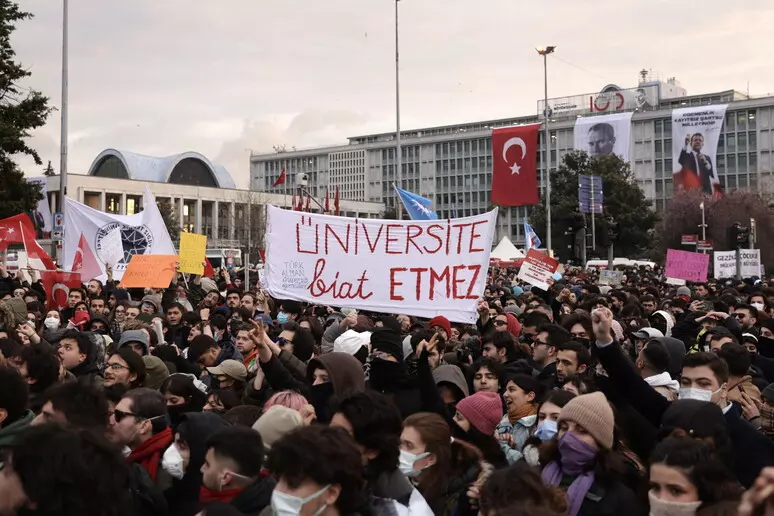After Istanbul Mayor Ekrem Imamoglu, President Tayyip Erdogan’s main rival in the 2028 elections, was arrested, protests were harshly suppressed by the police across Turkey. Finally, a clear response came from overseas: accounts supporting the opposition party were suspended on X.
Politico reported that “accounts of activists associated with universities” where the opposition started, who shared schedules, locations, or general information about the protests’ locations were removed from the platform. According to Turkish Interior Minister Ali Yerlikaya, authorities identified and blocked 326 profiles for “inciting hatred,” 72 of them based outside Turkey. Overall, 54 people were arrested thanks to a 2022 Turkish law that allows it if the Turkish government issues a warrant.
The suspension seems to apply only within Turkish borders. One example is Ömer Faruk Aslan who still appears to be active in the United States but not in Turkey. He was deactivated because, according to him, one of his posts received 6 million views.
On Saturday night, the Turkish government reported that 343 more people were arrested for organizing protests in Istanbul, Ankara, Izmir, Adana, Antalya, and Konya.
From the early days of negotiations to the acquisition in 2022, Elon Musk had boasted that he wanted to make the platform then known as Twitter the cradle of “free speech”. It would be users who would report “inappropriate” accounts and content, and trained engineers would evaluate on a case-by-case basis. Over the years, several accounts banned were readmitted. First was Donald Trump, removed in 2021 for inciting his followers during the assault on Capitol Hill on January 6, 2021; then Kanye West, blocked for anti-Semitic attacks; Andrew Tate, suspended for violating Twitter’s policies on hate speech; and Georgia Republican Congresswoman Marjorie Taylor Greene, removed for spreading false information about Covid-19 during the pandemic.
This is not the first time since Musk’s acquisition that Turkish users have had limited access to X. In 2023, during the last election campaign, when Erdogan was running for re-election, the platform had placed restrictions to “ensure that it remained available to the Turkish people.” According to transparency reports, X accepted about 86 percent of requests from the Turkish government to remove certain content in the second half of 2024.












